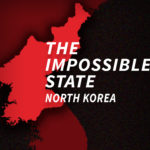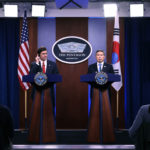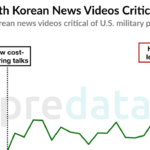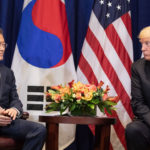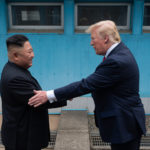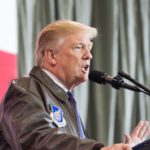July 9, 2020—
In this special episode, Ambassador Mark Lippert and Victor Cha bring together an all-star cast of Korean baseball experts to talk about the Korea Baseball Organization (KBO), its games being broadcast live in America on ESPN, and the importance baseball has played in people-to-people relationships between the U.S. and Korea and their alliance.
June 25, 2020—
This virtual session moderated by Ambassador Mark Lippert, Senior Advisor at the CSIS Korea Chair and former U.S. Ambassador to the Republic of Korea, features a discussion about the status of U.S.-ROK alliance in commemoration of the 70th anniversary of the Korean War.
June 25, 2020—
This virtual session, moderated by Dr. Young-kwan Yoon, Professor Emeritus at Seoul National University and Former Minister of Foreign Affairs of the Republic of Korea, features a discussion on opportunities for the future-oriented U.S.-ROK collaboration in new concepts of security including cyber, AI, and outer space. This is Session III of CSIS's three-part ROK-U.S. Strategic Forum 2020, that took place on June 24th and June 25th, 2020.
June 5, 2020, by Victor Cha and Ami Bera—
The unexplained periodic absences of North Korean leader Kim Jong Un over the past two months are troubling. Presumed health ailments for this obese smoker and drinker could leave his nuclear-armed dictatorship potentially leaderless overnight... A version of this op-ed appeared online on June 1, 2020 in The Washington Post.…
November 26, 2019, by Victor Cha, Eric Falcon and Bryce Pedersen—
Predata signals suggest a significant perception gap emerging between the U.S. and South Korea. First, South Koreans are more focused on the financial burden of the U.S. military presence than on the positive security benefits it provides. Second, U.S. demands for $5 billion in cost-sharing are generating the highest ever levels of social media and video commentary critical of U.S. forces in Korea.
November 22, 2019, by Victor Cha and Richard Armitage—
The 66-year alliance between the United States and the Republic of Korea is in deep trouble. The U.S.-China trade war, the South Korean government’s quiet leaning toward Beijing and President Trump’s transactional view of alliances have created a unique constellation of forces. The result could be a premature withdrawal of U.S. troops from the peninsula at a time when North Korea’s nuclear threat and China’s regional dominance grow unabated.
November 1, 2019, by Sue Mi Terry—
For Halloween, Kim Jong Un gave Donald Trump a trick, not a treat: North Korea fired two short-range missiles on Thursday toward the Sea of Japan. It was North Korea’s 13th weapons test this year—and the first since the Trump administration’s latest attempt to restart negotiations with North Korea quietly failed a few weeks ago. The first talks between the two sides in eight months broke down after only 8½ hours in Stockholm. The North Korean delegates stalked out, and Pyongyang subsequently said they wouldn’t resume the “sickening” negotiations with the U.S.
April 10, 2019—
In this second-ever live episode, students of CSIS Korea Chair Victor Cha’s “Modern Asia” class join host Andrew Schwartz and guests for a lively discussion about the upcoming meeting between South Korean President Moon Jae-in and President Trump. Guests include Victor Cha, CSIS Korea Chair Senior Fellow Sue Mi Terry, and Kelly Magsamen, the vice president for National Security and International Policy at the Center for American Progress.
February 25, 2019, by Victor Cha and Andy Lim—
A study of publicly available statements made by Donald Trump on the utility of alliances and U.S. troop commitments abroad to test the proposition that the President has a transactional view of alliances as opposed to a deep appreciation of both the security and non-security benefits afforded by these relationships.
